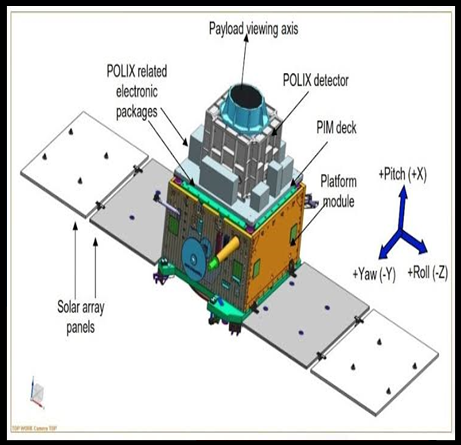ISRO’S ANNOUNCEMENT ON XPOSAT: ADVANCING X-RAY ASTRONOMY
Why in the News?
- The Indian Space Research Organisation (ISRO) reveals plans to launch its inaugural X-ray Polarimeter Satellite (XPoSat) to delve into the polarisation of intense X-ray sources.
Source: Full Afterburner
Significance of XPoSat:
- While India has established space-based X-ray astronomy focusing on imaging, time-domain studies, and spectroscopy.
- XPoSat marks a substantial addition by introducing a novel dimension to X-ray astronomy, generating anticipation and excitement within the scientific community.
Launch Details:
- The satellite will be launched by the Polar Satellite Launch Vehicle from the Satish Dhawan Space Centre in Sriharikota. The exact launch date has not been disclosed.
Mission Overview
- XPoSat is designed for observation from a low earth orbit (650-km altitude, low inclination of approximately six degrees).
- It will carry two scientific payloads for simultaneous studies of temporal, spectral, and polarisation features of bright X-ray sources.
Payloads and Objectives
- Primary Payload (POLIX): A polarimeter instrument in X-rays developed by the Raman Research Institute, Bengaluru, aims to measure polarisation parameters in the medium X-ray energy range of 8-30 keV from astronomical sources.
- Secondary Payload (XSPECT): Developed by the U.R. Rao Satellite Centre, ISRO, this X-ray Spectroscopy and Timing payload will provide spectroscopic information in the energy range of 0.8-15 keV.
The mission’s expected life is approximately five years, with objectives including measuring X-ray polarisation in the energy band of 8-30 keV and conducting long-term spectral and temporal studies of cosmic X-ray sources in the 0.8-15 keV energy band.

 Source: Full Afterburner
Source: Full Afterburner


